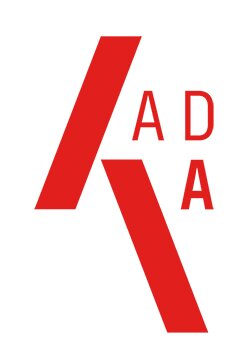Best International Trade Law Lawyers in France
Share your needs with us, get contacted by law firms.
Free. Takes 2 min.
Or refine your search by selecting a city:
List of the best lawyers in France
About International Trade Law in France
International Trade Law in France encompasses the rules and regulations governing trade between France and other countries. This area of law includes import and export regulations, customs duties, international agreements, and compliance with European Union trade policies. The framework seeks to facilitate smooth and fair trading practices, protect domestic industries, and ensure France's compliance with international trade obligations.
Why You May Need a Lawyer
Engaging a lawyer specializing in International Trade Law might be necessary for several reasons. These include navigating complex import/export regulations, handling disputes with international trade partners, ensuring compliance with international customs laws, and understanding tariffs and trade barriers. Additionally, businesses involved in international trade must often negotiate contracts and agreements requiring a deep understanding of legal nuances to protect their interests effectively.
Local Laws Overview
French trade law is heavily influenced by European Union regulations, which means businesses must comply with both national laws and EU directives. Key aspects include import and export controls, product standards and safety, anti-dumping measures, and customs duties. French trade laws also enforce intellectual property rights and competition policies, ensuring a fair trade environment. Understanding these elements is crucial for businesses involved in international trade to avoid legal complications.
Frequently Asked Questions
What is the role of the French Customs Authority?
The French Customs Authority is responsible for monitoring and regulating goods entering and leaving the country, collecting duties and taxes, and ensuring compliance with trade laws and regulations.
How does EU membership affect international trade in France?
EU membership means France adheres to EU-wide trade policies which facilitate free trade between member states, apply common tariffs on imports from non-EU countries, and adhere to EU trade agreements with other nations.
What are the consequences of non-compliance with trade regulations?
Non-compliance can lead to penalties, fines, seizure of goods, or revocation of trade licenses. It is essential to understand and adhere to all applicable trade laws.
How are international trade disputes resolved in France?
Trade disputes can be resolved through negotiation, mediation, arbitration, or litigation. France is a member of the World Trade Organization (WTO), and disputes may also be addressed through this international body.
What is the importance of trade agreements for French businesses?
Trade agreements facilitate easier access to foreign markets, reduce tariffs, and provide a stable legal environment for conducting business across borders, thus benefiting French companies engaged in international trade.
What should I consider when drafting international trade contracts?
Considerations include jurisdiction, applicable laws, dispute resolution mechanisms, payment terms, delivery obligations, and compliance with relevant trade laws and agreements.
What is an export license, and when is it required?
An export license is a government-issued document that allows the export of specific goods to other countries. It is required for controlled goods, such as military equipment or technology transfer.
How do I determine the customs duties applicable to my products?
Customs duties depend on the product's classification under the Harmonized System (HS), its origin, and existing trade agreements. Consulting customs brokers or legal experts can help determine the applicable duties.
Are there specific regulations for digital services and e-commerce?
Yes, the sale of digital services and e-commerce products is subject to specific VAT rules, consumer protection laws, and data protection regulations both at the national and EU level.
What is antidumping, and does it apply to my business?
Antidumping measures are trade defense instruments to protect the domestic industry from foreign companies selling products at unfairly low prices. If applicable, these measures can affect pricing strategies and market competition.
Additional Resources
Consider consulting the following resources and organizations for further assistance:
- French Customs Authority (Douanes Françaises)
- Ministry for the Economy and Finance (Ministère de l'Économie et des Finances)
- World Trade Organization (WTO)
- European Commission Trade Policy
- French Association of Enterprises and Industries (MEDEF)
Next Steps
If you need legal assistance in International Trade Law, start by identifying your specific legal needs regarding your trade activities. Research and consult with international trade lawyers or law firms specializing in this area to understand your options. These professionals can guide you through compliance, contract negotiation, and dispute resolution processes to ensure your trade operations comply with all applicable legal requirements. Additionally, consider attending industry seminars or workshops related to international trade for ongoing education and networking opportunities.
Lawzana helps you find the best lawyers and law firms in France through a curated and pre-screened list of qualified legal professionals. Our platform offers rankings and detailed profiles of attorneys and law firms, allowing you to compare based on practice areas, including International Trade Law, experience, and client feedback.
Each profile includes a description of the firm's areas of practice, client reviews, team members and partners, year of establishment, spoken languages, office locations, contact information, social media presence, and any published articles or resources. Most firms on our platform speak English and are experienced in both local and international legal matters.
Get a quote from top-rated law firms in France — quickly, securely, and without unnecessary hassle.
Disclaimer:
The information provided on this page is for general informational purposes only and does not constitute legal advice. While we strive to ensure the accuracy and relevance of the content, legal information may change over time, and interpretations of the law can vary. You should always consult with a qualified legal professional for advice specific to your situation.
We disclaim all liability for actions taken or not taken based on the content of this page. If you believe any information is incorrect or outdated, please contact us, and we will review and update it where appropriate.
Browse international trade law law firms by city in France
Refine your search by selecting a city.
















